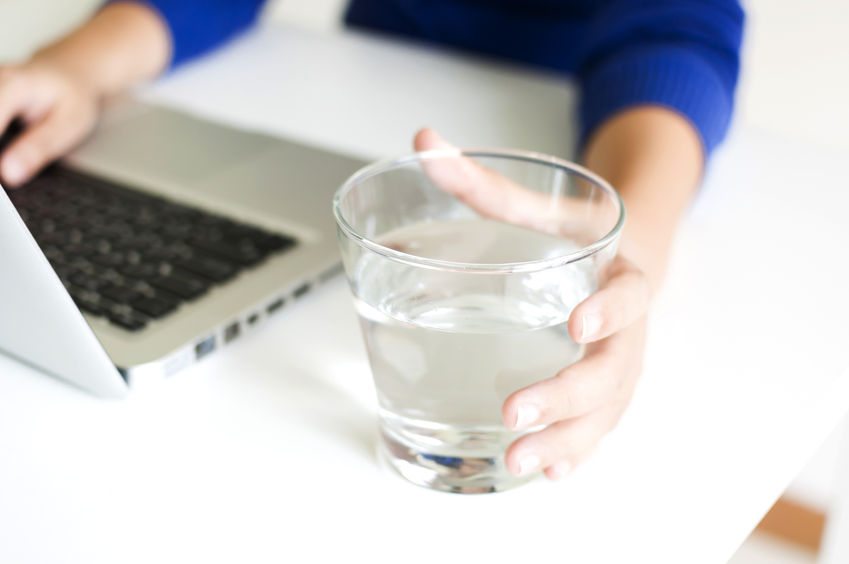Water is essential to life and makes up, on average, 60 percent of your body weight. Every system in your body depends on water to function. Without it — or enough of it — these systems begin to decline, resulting in potentially serious health complications.
You don’t have to be severely dehydrated to begin to experience symptoms. Mild dehydration in adults occurs when the body has lost about 2 percent of its total weight. At this point, some of the effects of dehydration include dry skin, thirst, loss of appetite, dry mouth, fatigue or weakness, head rushes and chills.
When the body experiences fluid loss of 5 percent more, severe dehydration effects begin to set in. Symptoms include increased heart rate, decreased sweating, decreased urination, headaches, nausea, muscle cramps, extreme fatigue and increased body temperature.
Should the dehydration continue to the point that 10 percent fluid loss occurs, the effects could be fatal. Some of the most severe effects of dehydration include muscle spasms, vomiting, confusion, difficulty breathing, racing pulse, seizures, chest and abdominal pain and unconsciousness. Should you or someone around you experience any of these symptoms, seek immediate medical attention.
In addition to these potentially dangerous health complications, failing to drink enough water can also affect weight loss. Simply put, if you want to lose more weight, drink more water.
Water acts as a hunger suppressant. The more you drink, the less hungry you will be throughout the day. When you deprive your body of water, cells begin to hold onto that water, increasing your weight. When your body recognizes you are consuming enough water, it will begin to release retained water, resulting in weight loss.
Water works to flush toxins out of your body. Toxins can cause inflammation and increased fat storage, as the body may wrap toxins in fat cells to prevent the toxins from doing damage. When you flush the toxins (from the environment, food, etc.) out of your body, you can then begin to release stored fat.
Here are a few tips to help you consume more water on a daily basis:
- Drink water before, during and after exercise. During your workout, drink 7 to 10 ounces of water every 10 to 15 minutes.
- Stick with water. Sports drinks contain electrolytes (sodium, potassium, etc.), but they also contain unnecessary calories. There’s no real benefit to drinking a sports drink unless you’re working out more than 60 to 90 minutes at a time or sweating excessively.
- Pay attention to the color of your urine. If you wait to drink water until you’re thirsty, you’re already mildly dehydrated. The color of your urine is the best indicator of hydration. Someone who is well hydrated has pale yellow or clear urine. The darker your urine, the more dehydrated you are.
- You’ve heard the recommendation to drink six to eight 8-ounce glasses of water a day, but this is not a one-size-fits-all rule. You should be consuming, on average, half your body weight in ounces of water daily. (If you weigh 150 pounds, you should drink 75 ounces of water a day.)
- Every time you pick up a glass of water, take 10 big gulps. Doing this will help you reach (or get close to) your water intake goals.
- Keep a reusable water bottle with you at all times. Drinking water frequently becomes difficult if you don’t have easy access to water. Purchase a reusable water bottle and keep it with you throughout your day. You should be refilling it several times to stay hydrated.
Remember, if you’re experiencing any of the effects of dehydration mentioned above, contact your health care provider to rule out any serious health problems.






